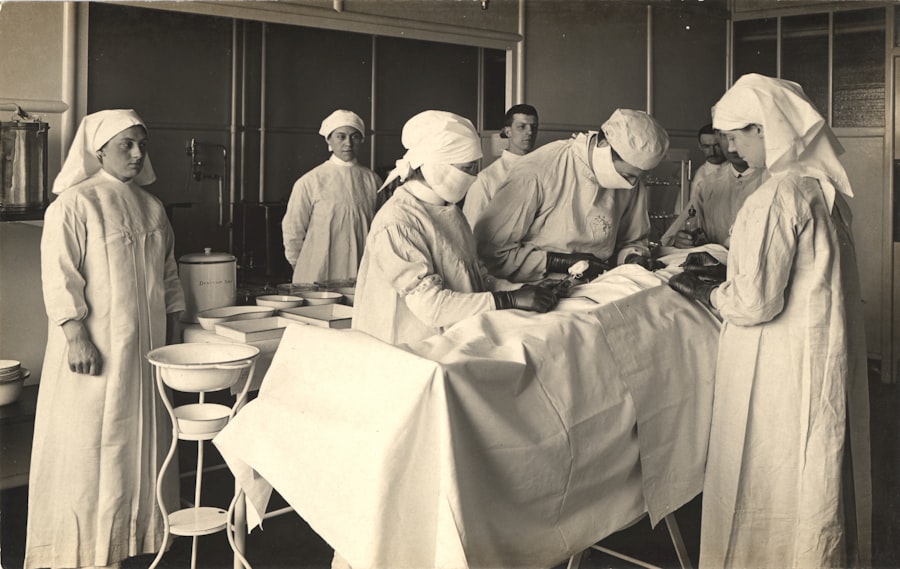Medical trial participants are the backbone of clinical research, serving as the essential link between theoretical advancements in medicine and practical applications that can improve patient care. Without these individuals, the development of new treatments, drugs, and medical devices would be severely hampered. Participants provide the necessary data that researchers need to assess the safety and efficacy of new interventions.
Their involvement is crucial not only for the success of individual studies but also for the broader advancement of medical science. Each participant contributes to a collective effort that can lead to breakthroughs in understanding diseases, improving treatment protocols, and ultimately saving lives. Moreover, the diversity of participants in medical trials is vital for ensuring that findings are applicable to a wide range of populations.
Different demographics, including age, gender, ethnicity, and pre-existing health conditions, can influence how individuals respond to treatments. By including a representative sample of the population in clinical trials, researchers can gather more comprehensive data that reflects real-world scenarios. This inclusivity helps to ensure that new therapies are effective across various groups, thereby enhancing the overall quality of healthcare and reducing health disparities.
Key Takeaways
- Medical trial participants are crucial for advancing medical research and developing new treatments.
- Participation involves weighing potential risks against benefits for both individuals and society.
- Ethical considerations ensure the safety, rights, and informed consent of trial participants.
- Stories of participants highlight their courage and vital role in combating diseases.
- Ongoing and future medical trials depend on continued volunteer involvement and recognition.
The Risks and Benefits of Participating in Medical Trials
Participating in medical trials comes with a unique set of risks and benefits that potential participants must carefully consider. On one hand, individuals may gain access to cutting-edge treatments that are not yet available to the general public. This can be particularly appealing for patients with chronic or life-threatening conditions who have exhausted conventional treatment options.
Additionally, participants often receive close monitoring and care from healthcare professionals throughout the trial, which can lead to improved health outcomes even if they are assigned to a placebo group. However, there are inherent risks associated with participation in clinical trials. Experimental treatments may have unknown side effects or may not work as intended, leading to potential harm.
Participants may experience adverse reactions that could complicate their existing health conditions. Furthermore, the psychological burden of being part of a trial—especially if it involves randomization to a placebo—can be significant. It is essential for individuals considering participation to weigh these risks against the potential benefits and to engage in thorough discussions with their healthcare providers to make informed decisions.
The Impact of Medical Trial Participants on Advancing Medicine

The contributions of medical trial participants extend far beyond individual studies; they play a pivotal role in shaping the future of medicine itself. Each trial generates data that can lead to new insights into disease mechanisms, treatment efficacy, and patient care strategies. For instance, the development of antiretroviral therapies for HIV/AIDS was made possible through extensive clinical trials involving thousands of participants.
These trials not only demonstrated the effectiveness of these treatments but also provided critical information on how to manage side effects and improve patient adherence. Furthermore, medical trial participants help to establish standards for future research. The data collected from their experiences can inform best practices in clinical trial design, patient recruitment strategies, and ethical considerations.
As researchers analyze outcomes from past trials, they can refine methodologies to enhance the reliability and validity of future studies. This iterative process is essential for advancing medical knowledge and ensuring that new treatments are both safe and effective for diverse populations.
The Ethical Considerations of Medical Trial Participation
| Ethical Consideration | Description | Key Metrics | Impact on Participants |
|---|---|---|---|
| Informed Consent | Ensuring participants fully understand the trial, risks, and benefits before agreeing to participate. |
|
Empowers participants, reduces risk of coercion or misunderstanding |
| Risk vs. Benefit Analysis | Evaluating whether the potential benefits justify the risks involved in the trial. |
|
Protects participants from undue harm |
| Privacy and Confidentiality | Safeguarding personal and medical information of participants. |
|
Maintains trust and protects participant identity |
| Equitable Selection | Ensuring fair participant recruitment without discrimination or exploitation. |
|
Promotes fairness and generalizability of results |
| Post-Trial Access | Providing participants access to beneficial treatments after trial completion. |
|
Ensures continued benefit and ethical responsibility |
Ethical considerations are paramount in the realm of medical trials, particularly regarding informed consent and participant welfare. Researchers have a moral obligation to ensure that participants fully understand what their involvement entails, including potential risks and benefits. Informed consent is not merely a formality; it is a process that requires clear communication and ongoing dialogue between researchers and participants.
This ensures that individuals are making educated choices about their participation based on comprehensive information. Additionally, ethical guidelines dictate that participants should be treated with respect and dignity throughout the trial process. This includes safeguarding their privacy and confidentiality, as well as providing them with the right to withdraw from the study at any time without penalty.
Researchers must also be vigilant about monitoring participants for adverse effects and ensuring that any emerging risks are communicated promptly. Upholding these ethical standards is crucial for maintaining public trust in medical research and encouraging future participation.
The Stories of Courageous Medical Trial Participants
The narratives of courageous medical trial participants often highlight the human spirit’s resilience in the face of adversity. Many individuals who volunteer for trials do so out of a desire to contribute to scientific knowledge or to help others facing similar health challenges. For example, consider the story of a young woman diagnosed with an aggressive form of breast cancer who participated in a clinical trial for a novel immunotherapy treatment.
Despite her fears about potential side effects and uncertainty about the treatment’s effectiveness, she chose to enroll in the trial after learning about its potential to help others in her situation. These personal stories often reveal profound insights into the motivations behind participation in medical trials. Some individuals seek hope when conventional treatments fail; others wish to leave a legacy by contributing to research that may benefit future generations.
Their bravery not only aids scientific progress but also inspires others to consider participating in trials, fostering a culture of collaboration between patients and researchers.
The Role of Medical Trial Participants in Fighting Diseases and Conditions

Medical trial participants are instrumental in the ongoing battle against various diseases and conditions that afflict millions worldwide. Their involvement has led to significant advancements in treating chronic illnesses such as diabetes, cardiovascular diseases, and neurological disorders. For instance, clinical trials have been crucial in developing new medications for diabetes management, allowing patients to achieve better glycemic control and reduce complications associated with the disease.
Moreover, participants play a vital role in addressing emerging health threats, such as infectious diseases. The rapid development of COVID-19 vaccines is a prime example of how medical trial participants can expedite responses to public health crises. Thousands of volunteers stepped forward to participate in vaccine trials, enabling researchers to gather critical data on safety and efficacy within an unprecedented timeframe.
Their willingness to participate not only contributed to the swift rollout of vaccines but also underscored the importance of collaboration between scientists and the community in combating global health challenges.
The Future of Medical Trials and the Need for Participants
As medicine continues to evolve, so too does the landscape of clinical trials. The advent of personalized medicine, which tailors treatments based on individual genetic profiles, necessitates a diverse pool of trial participants who can provide insights into how different populations respond to therapies. This shift towards precision medicine highlights an urgent need for increased participation across various demographics to ensure that new treatments are effective for all patients.
Additionally, advancements in technology are transforming how clinical trials are conducted. Remote monitoring devices, telemedicine consultations, and digital data collection methods are making it easier for participants to engage in trials without the burden of frequent hospital visits. However, these innovations also require a commitment from participants who are willing to embrace new technologies and methodologies.
As researchers explore novel approaches to trial design, fostering an environment that encourages participation will be essential for driving future medical advancements.
Honoring and Recognizing the Contributions of Medical Trial Participants
Recognizing and honoring the contributions of medical trial participants is crucial for fostering a culture of appreciation within the research community. Various organizations have initiated programs aimed at acknowledging the sacrifices made by these individuals, including awards ceremonies and public awareness campaigns that highlight their stories. Such recognition not only validates their efforts but also serves as an inspiration for others considering participation in future trials.
Furthermore, it is essential for researchers and healthcare professionals to engage with participants beyond the confines of clinical trials. Providing updates on study outcomes and how their contributions have influenced research can create a sense of community and shared purpose between participants and researchers. By celebrating these contributions, we can cultivate an environment where individuals feel valued and motivated to continue supporting medical research efforts that have the potential to change lives for the better.



